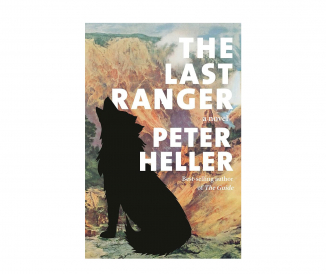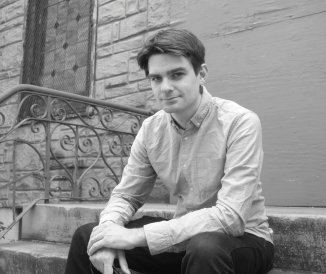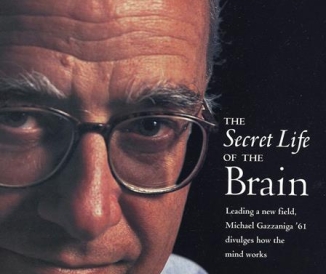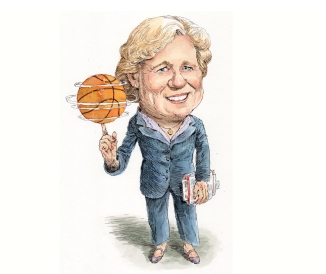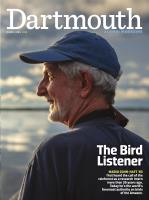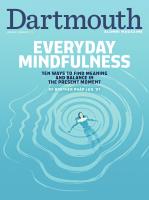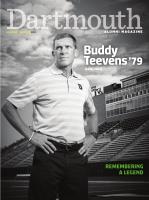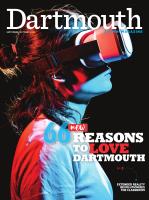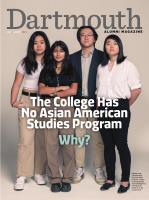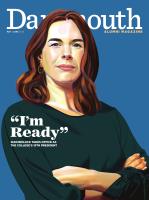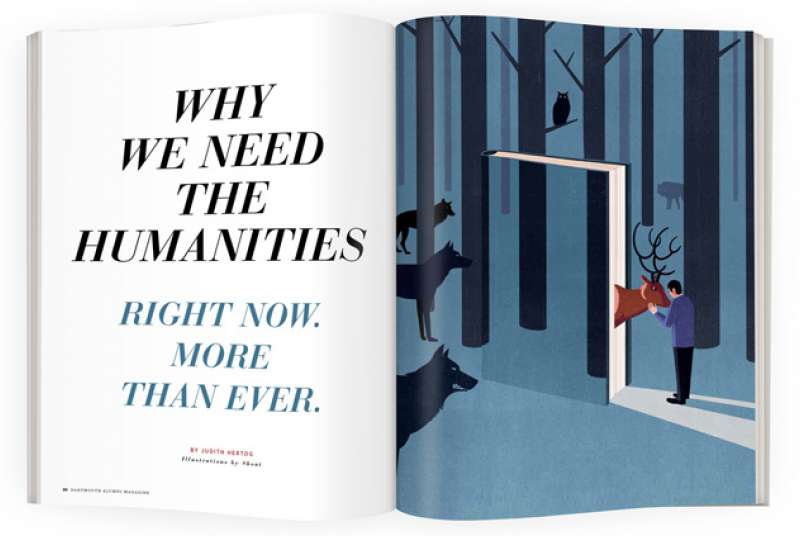
Why We Need the Humanities
Anyone on the campus of a liberal arts institution has heard the lament a thousand times: The humanities are in crisis mode. Students are no longer majoring in English, art, theater, Romance languages, German, the classics, religion or philosophy. They opt instead for more “practical majors” that they believe will better equip them for the job market. Nobody wants to hire an English major, they’ve been told, and if you study philosophy, you can count on being poor.
Ironically, academics argue that we need the humanities now more than ever. Why? Because society and culture are highly polarized in what has been deemed the “post-truth” era. Because Big Data is so valued we even capitalize the term. Because the fake news phenomenon has been giving critical thinking, long touted as the most positive result of studying the humanities, a run for its money.
And then there’s the tumultous 2016 presidential campaign. “The entire election process marked a turn in American society away from reasoned debate, informed decision-making and inspiring rhetoric toward a politics of suspicion, insinuation and threat—we are truly in a post-literate age,” says Barbara Will, a professor of English literature and associate dean of arts and humanities.
“I think it’s reasonable to assume that Donald Trump will be no friend to the humanities in particular or education in general,” says William Deresiewicz, author of Excellent Sheep, a scathing 2014 critique of the American education system that has been making the rounds among Dartmouth faculty. Deresiewicz spoke at the College last fall to make his case that an attack on the humanities is essentially an attack on democracy.
A former Yale professor, he contends that an education in the humanities is essential especially now because it teaches people to become critical, independent thinkers. “An educational system that relegates most people to technical or vocational training is a system designed for an oligarchy,” says Deresiewicz. “To discourage people from an education in the humanities is to exclude them from the fields that shape the way we think and therefore the way society looks—fields such as law, journalism, academia, the arts and media.” He worries that drastic cutbacks in funding for public universities have caused such a spike in the cost of tuition that students are now pressured to pursue only fields of study that yield an immediate payoff. Dartmouth undergraduates confirm this pressure comes into play at private institutions as well.
Deresiewicz argues that neoliberal politicians explain society exclusively in terms of profit and dismiss academic pursuits that do not contribute to moneymaking. Florida Gov. Rick Scott, for example, declared that he aims to “run government as a business” and proposed a plan to deter students from majoring in the humanities in favor of “degrees where people can get jobs.” According to Deresiewicz, such utilitarianism is detrimental to civil society.
Fake news and other alarming developments have been giving critical thinking, long touted as the most positive result of studying the humanities, a run for its money.
In 2014, 6 percent of American college students majored in the humanities, according to the American Academy of Arts and Sciences, down from 17 percent in 1967. At Dartmouth 15 percent of the class of 2015 majored in the humanities, a drop from 26 percent in the class of 1967. The number of freshmen who express an interest in the humanities prior to matriculating at Dartmouth is in steady decline—although some signs point to renewed interest once they arrive. (The College stipulates in its general education requirements that every undergraduate must take at least a sampling of humanities courses.)
Jeff Sharlet, a professor of creative nonfiction and bestselling author, feels a creeping sense of fundamentalism has left us bereft of the subtle scholarly discourse the humanities inspire. “Fundamentalists erase detail and flatten the world by insisting on one truth,” says Sharlet. “It’s detail and nuance that make a democracy. That’s why the humanities matter.”
“We now live in a scientistic world where everything comes down to data and measurements, and that has become our society’s religion: science or business,” says Will. She worries that this trend has already deeply affected the American education system. “We’re educating a generation that is not exposed to the humanities as a serious enterprise,” she says. “And that is frightening to me.” Will worries that kids today have little time for reading or reflection. In middle school students are pressured to attain a narrowly defined definition of success that is measured in test scores, rankings, admission to elite colleges, numbers and money. “When they get to college they are so conditioned to focus on achievement that that’s their worldview,” says Will. “All they can think is, ‘What’s the next gold star?’ ”
Will encourages students to pursue more reflective and intellectually passionate lives, but says it is difficult to make the case for thoughtfulness in a society that is so focused on achievements and results. She contends that a degree in a humanities subject is not only enriching at a personal level and essential at a societal level, but can, contrary to popular belief, lead to a high-paying job.
A 2014 report by the Association of American Colleges and Universities (AACU) found that, although humanities majors may not as easily land the lucrative entry jobs that engineering and econ majors often secure after graduation, humanities majors earn only slightly less than their non-humanities peers, and by mid-career humanities majors overall make more than workers with professional or pre-professional degrees. In fact, many top leaders in business, media and politics majored in the humanities: Financier Leon Black ’73 majored in history and philosophy; former Treasury Secretary Henry Paulson ’68 and Mitt Romney majored in English; Ted Turner majored in classics; Carly Fiorina majored in medieval history and philosophy. Chipotle CEO Steve Ells studied art history and Dartmouth trustee Greg Maffei ’82, who as CEO of Liberty Media is the highest-earning executive in Colorado, majored in religion. Even Kentucky Gov. Matt Bevin, who wants to withhold funding for colleges that graduate too many humanities majors, earned a degree in East Asian studies.
It turns out that the unquantifiable soft skills that are learned by studying the humanities are more essential for success in business or politics than particular technical skills. The AACU report found that employers generally don’t care about applicants’ majors, but rather their ability to think critically. Managers want employees who can adapt to diverse cultures, solve problems independently and write and communicate with confidence.
This resonates with Zonia Moore ’16, who, like a number of her peers, had to defy her parents to major in the humanities. Although Moore’s passion was learning Spanish and Italian, her parents were convinced that only a degree in hard sciences could lead to financial stability and job security. As a compromise, Moore majored in Romance languages and followed a premed track.
Now a consultant, Moore says the skills she learned studying languages taught her the adaptability to succeed in the workplace. “When you start learning a new language, you always have to problem-solve around your limitations,” she says. “Language learning makes you more comfortable with being uncomfortable. You quickly learn to adapt to unfamiliar situations where you haven’t been trained and you learn to trust your ability to figure things out as you go.”
Moore thinks students are simply unaware of the options that a degree in a humanities subject can offer. “Students are very concerned with job security and don’t see a specific job that humanities degrees lead to, so they are afraid of the unknown,” she says.
David Cordero ’16, who majored in English with a minor in computer science and whose senior fellow project explored how the Internet influences the sense of identity among gay men, agrees with Moore. “Students are insecure,” he says. “They want the security of a concrete quantitative background to go into a career that seems lucrative.”
Cordero’s parents initially questioned his decision to major in English, afraid that it would limit his job prospects, but they needn’t have worried. After graduation Cordero accepted a position at IBM in Cambridge, Massachusetts. Cordero recounts that, during an internship at IBM, he caught his supervisors’ attention because he always raised difficult questions. “Because of my background in critical theory, I have the skill set and toolkit to question things,” says Cordero. “I can, for example, think about technology from an ethical point of view or from a Marxist perspective, which is important because too often we don’t think critically about the way we use technology, consuming it mindlessly, without taking the time to consider the implications.”
“It seems that the problems of the world boil down to me not understanding others and them not understanding me, and that’s a humanities problem.” —Professor Daniel Rockmore
Cordero says he had no problem finding employment. “You just have to believe in yourself and in what you’re doing,” he says, “because when you major in the humanities your career path isn’t as clear and obvious as it is with some other majors.”
Some believe the College should do more to help students find their way to humanities-related careers. “I didn’t choose to be an English major because I was looking for a skill set to find a job. I did it because this is what I’m passionate about. I love thinking about big questions,” says Margaret “Lacey” Jones ’16, who majored in English, minored in religion and is now working in cybersecurity. She thinks the College pushes students too much toward Wall Street. “If you want a job in finance there’s a whole support network in place,” she says, “but if you want to work in the humanities, you are on your own.”
Professor Sharlet thinks professors everywhere should try harder to encourage students to put their humanities education to a practical use in society as writers, artists, academics and in other humanities professions. “Too many of us speak in a defeatist tone, with this attitude of ‘all we can do is hope they will at least be reading novels while they work at Wall Street,’ ” says Sharlet.
Ultimately, an education grounded in the humanities has value that transcends career concerns. “We live in a society that originates from books and ideas,” says Italian professor Graziella Parati, “so we need to be able to understand how those texts and ideas are created. Otherwise, if we don’t question, we are being dictated to by others. We have to be vigilant and create the world that we want.” She points out that the founding fathers of the United States were humanists who based the U.S. Constitution on humanistic values. She also notes that not everyone is comfortable with research in the humanities because, unlike other fields of study, the humanities do not provide definitive answers. Instead, they raise more questions. “Some students find such uncertainty very hard,” she says. “But our jobs as citizens and as human beings are hard.”
Parati, whose research focuses on Italian immigrant literature, also serves as director of the Leslie Center for the Humanities, which was established in 2000 and recently brought literary luminaries such as Jhumpa Lahiri and Zadie Smith to campus. These storytellers, Parati says, partake in the most essential of all human activities, whether it’s telling stories about ourselves or about the world around us. “It is how we create meaning and knowledge and how we construct polity, the political framework in which we live.” She says that college should give students the tools to discover their own narrative for their lives.
It could of course be argued that a humanistic pursuit such as seeking one’s personal narrative is an indulgence for people who have no more pressing concerns. But Annabel Martin, professor of women’s, gender and sexuality studies and Spanish, and director of the College’s gender research institute, says that for underprivileged students—whose recruitment is a priority across most private institutions—it is even more important to be grounded in the humanities. Martin echoes Deresiewicz’s assertion that the study of the humanities is essential for democratic participation. “If you come from an underprivileged background,” she says, “you must learn to understand the socioeconomic and cultural factors that have shaped your disadvantage so that you can go back into your community and imagine ways for change to take place.” It also works the other way around, Martin acknowledges: For the privileged, the humanities can foster a greater understanding of those less fortunate.
Martin, who last summer taught a course on humanities and human rights, argues that good humanities research challenges the establishment. She tells her students that, no matter their career paths, they will need to develop the intellectual resources to cultivate themselves as critical and ethical citizens.
Nate Fick ’99, a trustee who majored in classics and government, says he supports Dartmouth’s mission to educate students and prepare them for “a lifetime of learning and responsible leadership,” and he stresses that such leadership should be anchored in the humanities: “Whether you lead an investment bank or a biomedical research lab or a humanities department or a military unit, the humanities ground us in human tradition. They teach us how to think, how to lead, and how to do that in a diverse environment.”
Fick, who served in Afghanistan and Iraq from 2001 to 2003 with the Marines and is now the CEO of a software security firm, carried a copy of The Meditations of Marcus Aurelius with him during his combat tours, which reaffirmed to him the importance of the humanities. “They expose us to how human beings have thought and how they have adapted to life—the good and the bad—throughout history and various cultures. That is very powerful,” he says. Fick adds that in a society increasingly focused on technology and finance, it is all the more important to promote the humanities, and he emphasizes that the humanities remain at the core of Dartmouth’s identity as a liberal arts college.
Indeed, even as the humanities are under siege at other institutions, there is hope among some faculty that traditional liberal arts majors may see a resurgence at Dartmouth. The “Humanities 1-2” course sequence, a two-term freshman writing course that serves as an alternative to the required “Writing 5” course and the freshman writing seminar, is in such high demand that fewer than half of all applicants can be placed. This year a fourth section was added to the course, bringing the number of students up to 64. If interest remains high, more sections may be added.
“Humanities 1-2” has been around for decades, but the current director of the course, Andrea Tarnowski, professor of French and comparative literature and chair of the French and Italian department, says she is trying to invigorate the course by expanding its traditional focus on literature to a wider approach that includes all fields of research in the humanities. “We have expanded our worldview,” says Tarnowski. “In my field we now have courses on Caribbean French literature or on francophone Canadian literature. But the fact that we have more choices can also be confusing: How does a student know what to learn out of this huge cornucopia of knowledge?”
Tarnowski, who specializes in medieval French literature, says that one of the challenges of today’s humanities curriculum is that increased awareness of diversity makes it more difficult to reach a consensus on what needs to be taught: “In the past there was a core curriculum that every single educated person was supposed to have studied,” she says. “But everything that was written by a woman was absent from that curriculum, and everything that was written in a non-European language was absent.”
Tarnowski proposes that a coherent humanities curriculum can be built around themes and methods instead of a list of “great books.” “I have students think about what justice is or what it means to live according to your ideals,” she says, “as opposed to assigning them a list of great works of literature that you must have studied to be considered ‘educated.’ ”
Not everyone is optimistic about the future of the humanties, however. Edward Bradley, a professor emeritus in classics who started teaching at Dartmouth in 1963, laments that the College is turning from a place of true learning into a business venture that sells education as a consumer product. In a society that increasingly looks at business as a model for governance, college administrations are under pressure to measure success in terms of profit and quantifiable outcomes, which is not how the humanities approach learning, he says.
Quoting the Catholic mystic Thomas Merton, who wrote that “the function of the university is to help men and women save their souls...and society from the hell of meaninglessness,” Bradley argues that college should be a time when young people ponder questions about what it means to be human and how we should live our lives: the core of inquiry in the humanities. “President [John Sloan] Dickey ’29 used to say that the liberal arts should be liberating from everything that was parochial, obtuse and shackling in our mind,” says Bradley. “He created a climate that allowed faculty and students to place a greater value on humanities.” But, says Bradley, an elite college education is now being marketed as the entry into a certain lifestyle instead of as a path to knowledge. “[Nowadays] the Dartmouth education is designed to ensure that its alumni and alumnae go on to successful careers,” says Bradley, “which means ‘success’ as America today defines it, which means money and prestige in banking and in the corporate world.”
Although Bradley’s vision may be overly dark—every generation wants money and prestige—it is true that, increasingly, education is presented as a monetary transaction. Even Dartmouth’s admissions website trumpets “return on investment.” When the success of education is measured in such terms, the study of literature, religion, philosophy or other subjects in the humanities can be a hard sell, says Bradley.
But Dartmouth is trying to sell them: Last fall, as part of the new residential model, the College opened a humanities living learning community (LLC) in McLaughlin, which offers freshmen the opportunity to immerse themselves in humanistic pursuit. Forty-nine students opted for the humanities LLC, says Dennis Washburn, chair of Asian and Middle Eastern studies and professor in Asian studies, who serves as the house professor. About a quarter of the residents were also enrolled in “Humanities 1-2.” “In my opinion the College has come to place way too much emphasis in its public relations on STEM fields in recent years,” says Washburn. “Some overall rebalancing is necessary, and I believe the new residential system will help in that regard.”
Another initiative intended to boost the humanities at Dartmouth is digital humanities, a collaboration that encourages scholars to use computer technology to investigate questions in the humanities. Daniel Rockmore, professor of mathematics and computer science and director of the Neukom Institute for Computational Science, has been an active supporter of digital humanities, as has the institute at large, which has funded and helped initiate several projects such as online databases of John Milton’s works and Dante’s Divine Comedy and an online exhibit of Roman coins from the Hood Museum collection.
Despite his own science background, Rockmore thinks that in today’s world the humanities may be more relevant than the sciences. “We can create all kinds of technologies to guard ourselves against external dangers,” says Rockmore, “but at the end of the day, it seems that the problems of the world boil down to me not understanding others and them not understanding me, and that’s a humanities problem. An understanding of culture and history is the key to understanding all our problems today: fundamentalism, terrorism, racism, fascism—those problems can’t be solved with technological solutions.” Rockmore wishes that more science faculty would incorporate humanities questions in their teaching to encourage budding scientists to consider the ramifications of the technologies they develop. “Ultimately, you can’t think of the human world without considering the questions that are raised in the humanities,” says Rockmore.
“Socrates said that the most important thing in life is to be concerned with one’s own moral identity,” says Bradley, who has continued to occasionally teach Latin courses since his retirement. “This is the essential purpose of the humanities: to consider who we are, how we are and what is the meaning of our being.” He argues that the humanities have never been more relevant. “In an environment where we have forgotten how very fragile our democracy is and how its fundamental ideals and values can be so easily perverted and subverted by the social media aimed cynically at an electorate sadly wanting in the ability to reflect critically—and to evaluate the worth of raw information or indoctrination—the humanities are indispensable.”
Judith Hertog is a freelance writer and frequent contributor to DAM. She lives in Norwich, Vermont.

